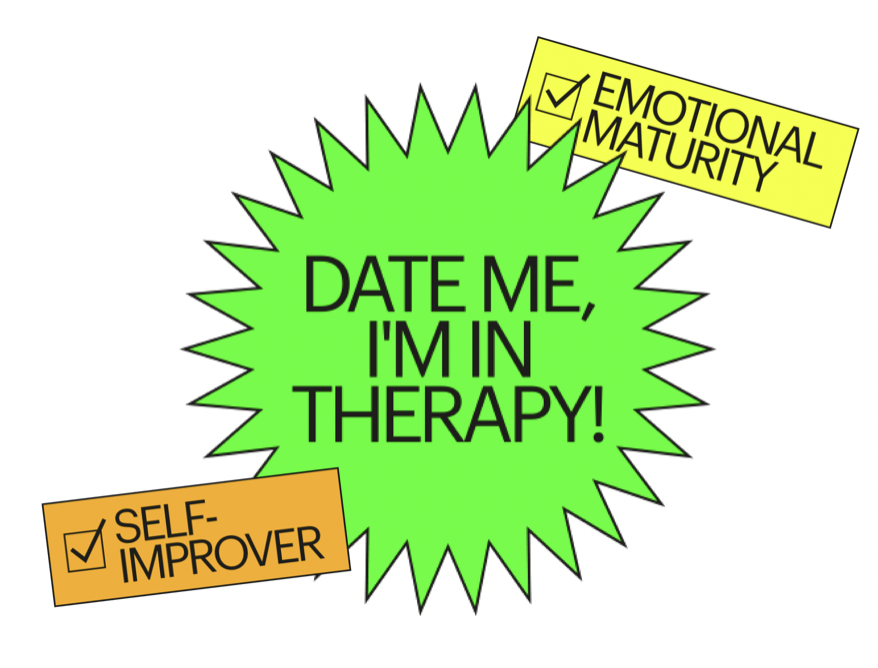How Therapy-Speak Took Over Dating
By Dani Blum for The New York Times
In a time when emotional maturity is highly desirable, almost everyone is “doing the work.”
“In the ’50s, or even the ’80s, it would be hard to imagine that saying ‘I see my therapist regularly’ would have status,” said Eli Finkel, a psychology professor at Northwestern University and the author of “The All-or-Nothing Marriage.” But now, he said, taking care of one’s mental health carries social currency in some spheres.
A growing number of people now broadcast intimate, specific details, including proclamations about their mental health, Dr. Carbino said. It’s a technique used both to signal your values and to weed people out, she said — if therapy is essential to you, for example, you might not want to date someone who’s never been.
It suggests that you’ve done “the work.” In other words, you’re enlightened, the best version of yourself. “It’s part of this discourse of self-optimization,” Dr. Bandinelli said.
There are, however, clear downsides to learning a therapy term via TikTok video or meme, namely that nonprofessionals can get it wrong. The term “trauma bonded,” in particular, is tossed around to signify connecting with someone over shared struggles; the clinical definition of the term refers to a specific pattern of abuse.
This language can also provide a convenient excuse to write someone off. “I find a lot of the times, it gives people leverage,” said Edward Nyamenkum, a 29-year-old art director in Montreal. “It makes people feel OK when they ghost someone, like, ‘They’re obviously toxic,’ without giving them a chance.”
And when people misuse these words, deploying a weighty term like “gaslighting” to describe more banal, everyday turmoils that come with dating, those who actually experience abuse have less of a voice, Dr. Bandinelli said. This “explosion of diagnostic language,” as she called it, provides blanket, simple language for what are often complex and specific conundrums that come with modern dating.
“There’s this sense that using jargon that’s pseudoscientific somehow makes our argument stronger,” Dr. Bandinelli said. If someone acts like a jerk, she said, that may be just be one person’s opinion. “But if you’re ‘gaslighting me’ or ‘love bombing me,’ that makes it objective,” she said.
Read the full article here.



